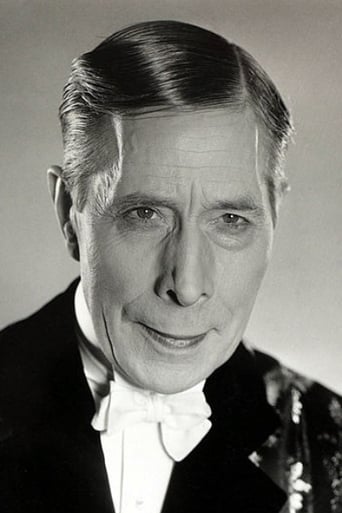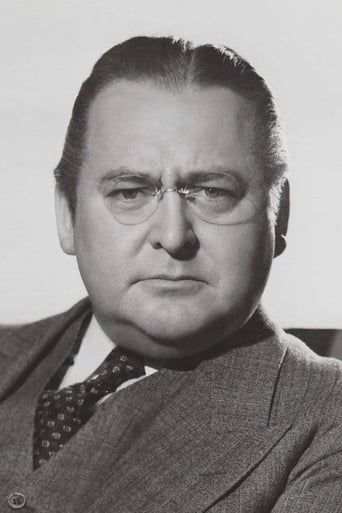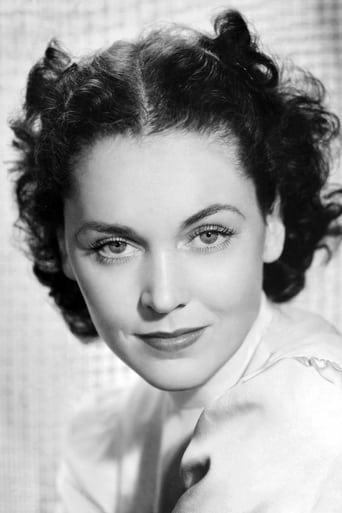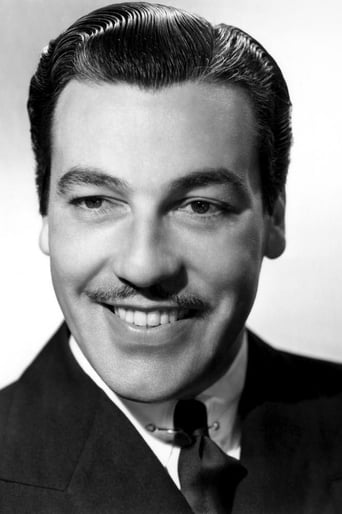Platicsco
Good story, Not enough for a whole film
FuzzyTagz
If the ambition is to provide two hours of instantly forgettable, popcorn-munching escapism, it succeeds.
Matylda Swan
It is a whirlwind of delight --- attractive actors, stunning couture, spectacular sets and outrageous parties.
JohnHowardReid
A fine historical drama, splendidly acted, especially by Arliss and Dumbrille. When the Queen Mother (Violet Kemble Cooper) says of Gaston (Francis Lister), "He is mad with rage!", there is a close-up of Dumbrille. Although he actually says nothing, you can read his thought in his eyes: "He's mad all right!" Arliss is given a terrific entrance. Perhaps I should say that Arliss gives himself a terrific entrance? More restrained than usual, his jaunty walk cloaked by his sweeping cardinals' robes, he delivers his lines with incisive eloquence, making the most of Lipscomb's witty dialogue. Edward Arnold also takes advantage of his role as the king, creating some wonderful moments. On the other hand, O'Sullivan and Romero provide some expendable romantic interest. Director Rowland V. Lee is generally content to take a back seat to his cast, though he does contrive some effective long shots. Of course, so far as the players were concerned, the movie was actually directed by George Arliss. Day's art direction and Kiam's costumes are especially impressive.
bbmtwist
A superb political screenplay, as boasts all those films surrounding Arliss' creations of great men from the past. One of his greatest performances. Here he acts mainly with his eyes – one can almost see the wheels turning, see him thinking, plotting his next move. The great voice is there of course, but the crafty eyes carry his interpretation of the character.The time is 1630. Arliss first appears from a distance, it could be a double, at 7 minutes into the film, but his entrance as an actor occurs at 14 minutes into the plot. Good production values. Edward Arnold believable as King Louis XIII. The plotting for power is clear and understandable as it twists and turns. Interesting that Gaston, the King's brother and lusting for power, echoes England's Henry II's proclamation re Becket, "Will no one rid me of this troublesome priest? Or words to that effect.Interesting in that Arliss worked for both studios, Fox and 20th Century, before the merger that same year. One of the few Arliss films available commercially and recently released.
kevin olzak
1935's "Cardinal Richelieu" turned out to be the Hollywood finale for acclaimed British star George Arliss, so adept at portraying larger than life historical figures. Here, it's the notorious Cardinal, often depicted as a villain yet acting on behalf of King Louis XIII (Edward Arnold) to ward off treachery within his inner circle, chiefly from top aide Baradas (Douglass Dumbrille), who takes every opportunity to convince the King that Richelieu is the real enemy. While Arliss chose to film stories or plays that were old fashioned, one cannot condemn his acting as barnstorming; he remains calm and rational, coolly weighing his options before deciding on a plan of action, letting others act up a storm, unable to wrest the screen away from his commanding presence (indeed a larger than life performer, sadly underrated nowadays). The unobtrusive love interest is supplied by Maureen O'Sullivan and Cesar Romero, while among the agitators attempting to get Parisians to revolt against Richelieu is a 29 year old John Carradine, appearing at the 41 minute mark, billed 31st out of a cast numbering 36: "Down with Richelieu! He's not in favor with the King, why should we listen to him? Down with him!"
theowinthrop
There is no denying that George Arliss's position as a leading star of movies has declined precipitously in the last half century. That he appeared in historical films where he was involved with great events, and bringing fictional lovers together, is used as a joke to dismiss him. Only when studying his actual performances does one realize that his restrained acting was a tremendous advance over the thumping scenary tearing of the silent period. If you doubt this, look at his performance in THE IRON DUKE. Although too short to play Wellington, he does the best with the role. In the film he has to confront the French royal court after the judicial murder of Marshal Ney (1815). The actor playing Louis XVIII is overacting incredibly, and Arliss knows it. Look at the fierce disapproval in his face in that scene.Here, he is playing Armand Du Plessis, Cardinal Richelieu, the real ruler of France from 1626 to 1642 (the titular ruler was King Louis XIII - here Edward Arnold, splendid but wasted in a small role). Richelieu took a France, long weakened by religious wars (although it had begun a good recovery under King Henri IV and his minister Sully), and made it the supreme power in Western Europe, at the expense of Charles I of England, the Germans in the Thirty Years War (he paid off the King of Sweden to prolong the war), and Spain. Richelieu is usually considered a villain in movies (like THE THREE MUSKETEERS) but he was the creator of modern France. Arliss does very well in the role, bringing the patriotism and brilliance of the cardinal out - and he also happens (for a change) to look like Richelieu. But what makes this performance most interesting is that the film captures a 19th Century theatrical workhorse - Edward Bulwer-Lytton's play RICHELIEU. It was one of the most popular "modern" plays in English and American theatre in the 19th Century, and had been performed by Edwin Booth among others. The key scene for whoever played the Cardinal was "the Curse of Rome" Scene, where Richelieu warns of the wrath of the Papacy if anything happens to him. Arliss delivers this in the film - the sole example of this 19th Century acting moment in film.



